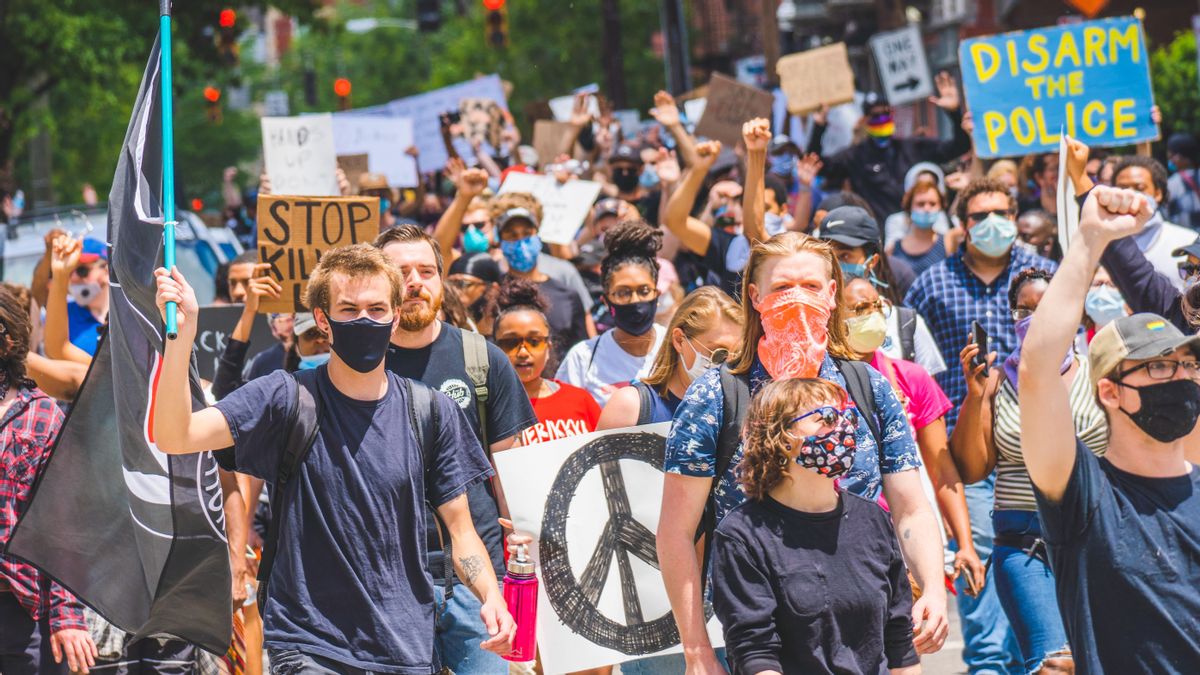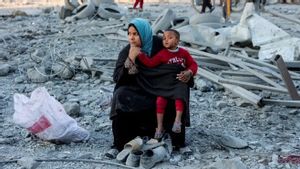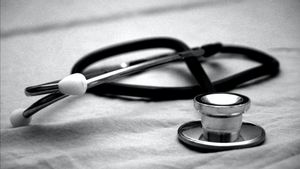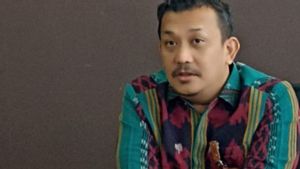JAKARTA - The wave of demonstrations in the United States continues to roll in as a form of protest against the murder of George Floyd in Minneapolis and police brutality against other black residents. In the midst of the current outbreak of COVID-19, health experts warn of the possibility of an increase in disease infections due to demonstrations. Ultimately, however, perhaps the demonstrators think the epidemic of police brutality is more dangerous than COVID-19.
Concerns about an outbreak of COVID-19 came from a doctor who joined the demonstration movement, Kim Sue. "There is concern that the protests could become an arena for large dissemination," he was quoted as saying by The Guardian. Then does this mean that participating in the current demonstration is very risky?
Doctor Sue said that everyone has their own risk burden calculation based on their understanding. There is no single standard. "That's why it's so important to talk about what they can do to minimize the risk," he said.
Many have felt that racism and police brutality altered their risk calculations for disease. African American doctor Georges Benjamin said the risk of being shot and killed by police officers in some communities may be much higher than the risk of catching COVID-19.
Benjamin says a public health perspective is all about risk. "It is true in fact we are seeing a spike in disease. But in the end, we also still see an epidemic of police violence that seems like no end," he said.
During the early days of COVID-19, staying at home is an effort that must be made to become a good citizen. But not everyone can stay at home for long. It is a privilege.
Because of this case of racism, this privilege was taken away. Because of this condition, it is fitting that people take to the streets. There is never a comfortable time to protest.
Prevent disease during actionDespite the overwhelming emotions, the passion for justice was burning. However, efforts to implement the pagebluk prevention protocol are still mandatory. Then, how do you prevent the spread of disease even when you are in a crowd?
Here are some things that need to be done according to Doctor and Executive Director of the American Public Health Association, Georges Benjamin. First, try to go to a smaller crowd. In addition, standard preventive measures such as using masks, carrying hand sanitizers should not be missed.
Another effort that can be done is to avoid shaking hands and as much as possible do not neglect to maintain physical distance. "A lot of people feel it is something they should do, and we (the American Public Health Association) support their right to do that," he said.
Meanwhile, Doctor Kimberly Sue advised against taking part in daily demonstrations. "From the point of view of disease transmission, I would recommend people maybe go once a week and do other organizing via the internet," said Sue.
The English, Chinese, Japanese, Arabic, and French versions are automatically generated by the AI. So there may still be inaccuracies in translating, please always see Indonesian as our main language. (system supported by DigitalSiber.id)









